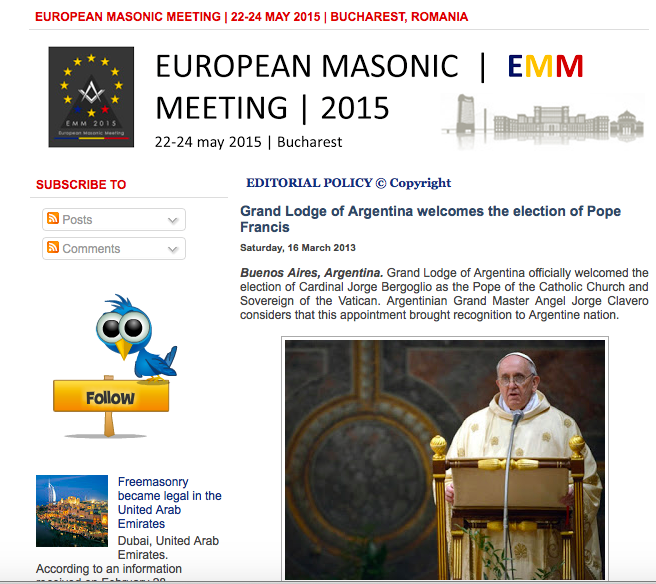Our Power-Hungry Church? Imagine our surprise!
By Dorothy Cummings McLean
I live in Scotland which, until the 1990s, suffered from deep divisions in areas where there were enough Catholics to annoy the Protestant majority. In the 20th century Christmas was all but illegal–which is why the Scottish New Year’s Eve is such a big traditional deal–and Catholic Scots, like their Presbyterian neighbours, worked at least a half-day on the 25th of December until the end of the 1950s. There was a hiring system that meant that grads of Catholic schools sat at the bottom of the career ladder. And instead of talking openly about the gross prejudice in Scotland against Catholics (and the simmering if silent Catholic resentment) Catholics and Protestants beat hell out of each other after football matches.
Now the increasingly lax Presbyterians are mostly okay with Christmas, and graduates of Catholic schools can scoot up the career ladder as fast as the Protestant grads, and throat-slashing after football games has been greatly reduced, but the Orange Order still marches through Scottish streets to show their defiance of the mythical papist plot to make everybody Catholic.
As my mother, a convert, comes from Scottish Presbysterian stock, the Presbyterian anti-Catholicism of the Scottish (and Scottish-Canadian) past has featured in my family life. My great-grandfather was most definitely an Orangeman, and my grandmother claims she and my grandfather were also Orangemen, and this explains why they were so down on my mother becoming a Catholic and why, apart from weddings, my grandparents never set foot in a Catholic church.
Meanwhile, I have a dear friend who belongs to the Free Presbyterian Church of Scotland, and what I have seen on their website about Roman Catholics would curl (or straighten) your hair. Still, we get along famously and had a sectarian tiff only when my friend protested the presence of the Pope of Rome on Scottish shores. Of course, that Pope of Rome was Benedict XVI; if today the “Protestant” Rangers football fans were to begin their traditional (albeit now illegal) chant of “Kick the Pope”, they might be startled to hear a few Catholic football fans–if only those Catholics who actually believe the Catholic faith–joining in. Such could be the Francis Effect on Scottish ecumenism.
Given my lifelong resistance to anti-Catholicism, to say nothing of hearing from Catholics about how fantastic has been the Church since the Second Vatican Council, you can imagine my surprise that the latest person to wail about the “power-hungry” Catholic Church is its current pontiff. I am used to one Catholic narrative that before 1963 the Church was Simply Awful, and I am used to the Protestant and post-Protestant narrative that the Church is STILL Simply Awful, but the Supreme Pontiff’s insinuation that the Church is STILL Simply Awful and will Continue to Be Simply Awful Until He Has Finished Renovations is startlingly new.
Meanwhile, calling the Church “power-hungry” is rich coming from a guy who may or may not have been involved in the St. Gallen Mafia’s machinations to put him on the throne balcony.
Incidentally, doesn’t that “Secret Pact” Mass in the Catacombs in 1965 we’ve been hearing about remind you of a Malachi Martin novel?
On the evening of Nov. 16, 1965, quietly alerted to the event by word-of-mouth, some 40 Roman Catholic bishops made their way to celebrate Mass in an ancient, underground basilica in the Catacombs of Domitilla on the outskirts of the Eternal City…
…the Mass was celebrated shortly before the end of the Second Vatican Council, the historic gathering of all the world’s bishops that over three years set the church on the path of reform and an unprecedented engagement with the modern world — launching dialogue with other Christians and other religions, endorsing religious freedom and moving the Mass from Latin to the vernacular, among other things.
as the liturgy concluded in the dim light of the vaulted fourth-century chamber, each of the prelates came up to the altar and affixed his name to a brief but passionate manifesto that pledged them all to “try to live according to the ordinary manner of our people in all that concerns housing, food, means of transport, and related matters.”
The signatories vowed to renounce personal possessions, fancy vestments and “names and titles that express prominence and power,” and they said they would make advocating for the poor and powerless the focus of their ministry.
In all this, they said, “we will seek collaborators in ministry so that we can be animators according to the Spirit rather than dominators according to the world; we will try to make ourselves as humanly present and welcoming as possible; and we will show ourselves to be open to all, no matter what their beliefs.”
The document would become known as the Pact of the Catacombs, and the signers hoped it would mark a turning point in church history.
Instead, the Pact of the Catacombs disappeared, for all intents and purposes.
Too bad Malachi isn’t alive today to hear what the Secret 1965 Mass was really all about. I’m not sure why, though, given the spirit of the Second Vatican Council, it was so secret, or if it had to be a big secret in 1965 why it no longer has to be a secret in 2015. Really, the whole thing does not sound very collegial to me.
But that’s another post.
Right now I am reflecting on how bizarre it is that the Catholic pontiff sounds like an elderly member of the Orange Order, and how an increasing number of devout Catholics are feeling a strong desire to kick the pope.
